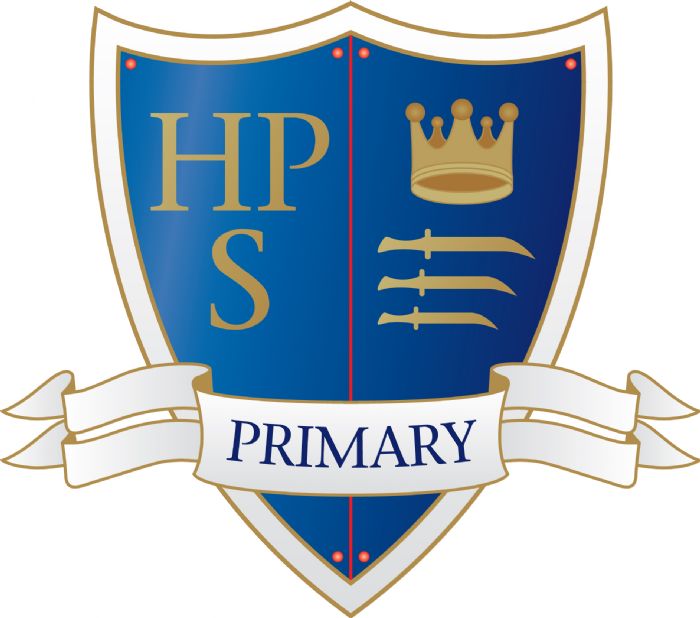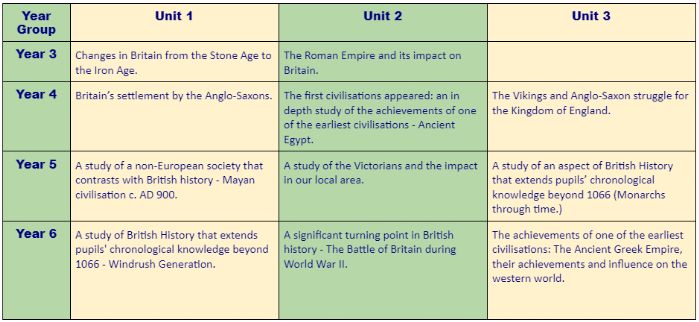History
Subject Leader:
A team of History and primary specialists.
Please click for the History National Curriculum
What is the intention of our History Curriculum?
History is valued as a discrete subject. It is taught in unit blocks across the school year. Our pupils develop a knowledge and understanding of the local area, Britain’s past and that of the wider world. We have selected a range of historical periods, significant events and famous people for study, with the intention of ensuring diversity and accurate representation: we aim to keep up to date with the evolving and developing knowledge in these domains. From our professional experience and information gathered from our pupils, we know these study choices motivate our pupils and encourage them to learn more about the past through their own historical enquiry. Furthermore, these choices open up important and relevant debates for us today such as the movement of people, economic inequality and the use of power for good or for bad.
In Early Years pupils talk about the lives of the people around them and their roles in society. They know some similarities and differences between things in the past and now, drawing on their experiences and what has been read in class. Pupils can understand the past through settings, characters and events encountered in books read in class and storytelling.
In Key Stage 1, pupils consider their own life history, important events that have happened to them and their family and the impact these events have on them. We introduce significant people and events from the past and their positive and negative impact on society, as well as making a comparison with our lives now and then so that pupils start to develop an understanding of chronology, their historical identity and how history has an impact on us all.
In Key Stage 2, our historical study starts with ancient civilisations in Year 3 and ends with World War II and the Battle of Britain in Year 6. Through the different eras studied we learn about the complexity of society, the often difficult process of change due to the actions and motives of key people, nations and civilisations, and the diversity of communities, individuals and their different life experiences. We encourage pupils to reflect on their own life experiences in comparison (similarities, differences, their own challenges and successes), their historical identity and why they may take a particular viewpoint and the evidence to support it. We encourage an appreciation of different cultures and how the past has shaped the present; to learn from past mistakes and to celebrate the endeavours of others to shape our world for the better. We encourage our pupils to consider their place in the world and the positive impact they can make.



